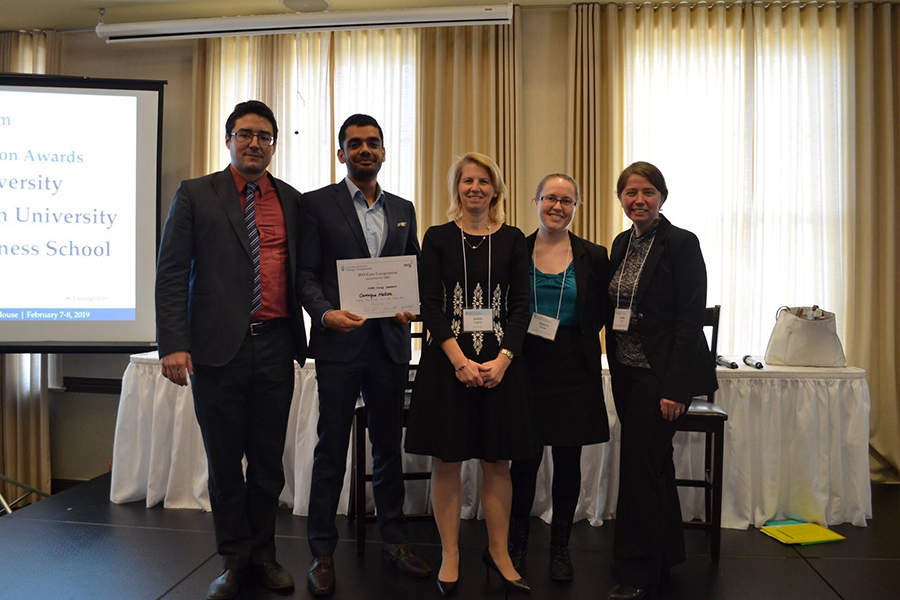
EPP Doctoral Students Place Second at Columbia’s Energy Competition
By Cody Januszko
On Feb. 7, three Carnegie Mellon University Engineering and Public Policy PhD students placed second in Columbia University’s Energy Case Competition. The team took home a $1,500 cash prize.
Part of Columbia’s Energy Symposium, the annual Energy Case Competition gives graduate students from around the world a platform to work on energy and environmental solutions and present their solutions to a panel of judges.
After a preliminary round in January, 12 teams were selected to present in February. After these presentations, the final four teams received feedback from the judges and presented their revised solutions later that day. The top three teams received cash prizes.
For their preliminary round, the CMU team, which consisted of Aniruddh Mohan, Ashley Orr and Tamara Savage, designed a financing solution for a manufacturing company’s rooftop solar program. Their design allowed them to advance to the next round.
“We worked very well together, both on a personal level and in terms of having complementary skills and backgrounds,” said Savage. “Coming from different perspectives helped us come up with a comprehensive, holistic solution to the problem.”
They then created an efficient energy solution for a 9,200-bed medical center in Houston, Texas. Prioritizing resiliency, the team decided to focus on wind, solar photovoltaics and natural gas turbines. By using information from the Department of Energy’s open source data, they were able to find hourly estimates for electricity and heating demands for a Houston hospital. After testing, they concluded that their solution would allow the hospital to meet its electricity needs independent of the local grid.
“Through simple modeling exercises at a micro level, we managed to gain interesting insights into macro-level dynamics that are shaping current debates in energy and climate policy,” said Mohan.
After the final presentation, other attendees of the symposium were excited to talk with the team about their project—and share their excitement for the team’s victory.
“These applied policy discussions are the core of and motivation for my work in the Engineering and Public Policy Department,” said Orr. “Speaking with practitioners about my team’s work was incredibly valuable and inspiring.”
The team's participation in the Energy Case Competition was supported by the Scott Institute for Energy Innovation.